God wants his name and culture, his love and purposes to fill the earth, so he shares his heart with people. In Genesis 1 he commands people to multiply and fill the earth. Centuries later in the final chapter of Matthew’s Gospel, Jesus commissions the Church again to multiply and fill the earth. Glimpsing the heart of God will help us come to a possible understanding of this conundrum that can turn into an accusation against God or a misunderstanding of His character.

Some people simply will never hear about Jesus. Down through millennia humans have pondered the question of “Why would God…?” Specifically from Christians, if God is good and powerful, then why does he provide only a narrow way of salvation (Jesus) that so many will never know?
Does he not care? Is he absent? Does he lack power? Or even, is he unjust?
There are different ways that Christians can process this question. We will give a couple of ways and share our preference.
The Way of Callousness
One option seems harsh or even hard-hearted of God. Simply put, God is in charge and he can do what he wants. This perspective comes from Romans chapter 9. Speaking of Pharaoh’s hard heart, we read in Romans 9:18,
18 Therefore God has mercy on whom he wants to have mercy, and he hardens whom he wants to harden.
Of course, with this post we are not talking about those who have a chance to know God, yet still reject his offer of mercy. We are here concerned with those who have never heard. Along the same “callous” path we read a hypothetical option again in Romans 9:
19 One of you will say to me: “Then why does God still blame us? For who is able to resist his will?” 20 But who are you, a human being, to talk back to God? “Shall what is formed say to the one who formed it, ‘Why did you make me like this?’” 21 Does not the potter have the right to make out of the same lump of clay some pottery for special purposes and some for common use?
22 What if God, although choosing to show his wrath and make his power known, bore with great patience the objects of his wrath—prepared for destruction? 23 What if he did this to make the riches of his glory known to the objects of his mercy, whom he prepared in advance for glory—24 even us, whom he also called, not only from the Jews but also from the Gentiles?
It’s important to note that Paul framed the entire passage in Romans 9 as a “what if” situation with two “Why” questions and two “What if” questions. Paul is NOT laying down the final explanation of why people are not saved. He intentionally softens the reality of this truth by making it a hypothetical option, though not a pleasant one (and places it beside Romans 10 which is supported by the second option below). The harsh truth is, the callous option is possible, because God is God and we are not. He is in charge and he is righteous, and whatever he does and decides is by definition “righteous.” God can do whatever He wants with any of us. He sets the standard for all things holy and right. If we think differently than God, then guess who is wrong?
The other calloused (and hypothetical) twist is that Paul seemed to indicate that God may intentionally create people to condemn, and by doing so increase the appreciation of those who receive God’s mercy. That is, by observing unsaved people, I as a saved person should feel even better about my salvation because “God chose me out of all the people to love.” (Leslie previously dated a guy who thought this way, and she broke up with him soon afterwards! Man, I am glad she takes her theology seriously!)
The danger of the callous perspective is that while the facts may be true hypothetically or literally, the bluntness of “God is sovereign, and you are not,” makes God’s character appear more like the deities of other world religions. In the Islamic world, Muslims pepper their speech with “insha’allah” (if God wills), since everything (and we mean everything!) is about God’s supreme will. (i.e. “Would you like tea or coffee?” “Coffee, insha’allah.”) Alternatively, the callous perspective could easily sound like Hindu fatalism, and there is nothing that you can do to change anything. Your fate in life was sealed before you were born, your future is already determined by forces beyond your control. Your actions are basically meaningless. Therefore, you might as well resign yourself to your lot in life.
Having lived for many years in the Muslim world and the Hindu world, we are sensitive to Bible passages that, when understood apart from the whole context of Scripture, give an incomplete picture of the Christian God, his character and kingdom. We have talked with Christians who run too quickly to God’s sovereignty and perhaps unknowingly they fall into the trap of making the Creator God sound like a prideful or petty foreign god (though they encourage people to give him the glory that He is due!). Though it could hypothetically be true with its cold facts, the Callous Way is neither a winsome argument nor a warm invitation that draws people to Jesus. It should remain in the hypothetical realm, or it can make people want to vomit! Thankfully, the “Way of Callousness” is not the only option.
We have heard missionaries on the field say, “We just wish God marked people’s foreheads with a big letter C.” Confused we asked, “What does C stand for?” Then they looked confused. “Well, Chosen of course. If we knew they weren’t chosen, we wouldn’t have to waste our time on them!” Yeah, we both wanted to vomit. Please know that God wants everyone, though many will not come!
The Way of Responsibility
We prefer another view. The Way of Responsibility highlights God’s amazing power and the reality that he created humanity in his image. For people to bear his image, God shared his power in Genesis 1-2. Though humanity abused that power, God’s purposes (because indeed, he is sovereign) cannot be thwarted. Jesus came to demonstrate how we can live in allegiance to the Creator God. His provision of forgiveness and promise of resurrection give us peace and hope. But He did more than that. Jesus restored humanity’s image-bearing responsibilities. He blessed his followers with the Holy Spirit’s indwelling presence. With that came the power to go to the ends of the earth, find captives and set them free in Jesus’ name. This view carries a high view of both God and people, because God shows that people are worthy of his trust.
God creates people with the potential to know him. And when his people understand and accept the responsibility of sharing God’s heart, God empowers them to reach to the ends of the earth. God creates people, those that will hear of him and those that will not hear of him, because he trusts you!
God always chooses to work through human agents, including you. God sent a dream to Pharaoh and Joseph interpreted, a dream to Nebuchadnezzar and Daniel responded, a scroll of Isaiah and Philip met the Ethiopian eunuch, a blinding visitation to Saul and Ananias laid on hands, an angelic visitation to Cornelius and Peter went to preach. God wills to work with people.
God limits himself by partnering with people. Distractible, petty, frail, selfish people – and for some reason, God chooses to submit his awesome power to us. He shares it abundantly, and we become…responsible.
Responsible has two meanings here.
1. God’s plan now becomes our job, our duty. His vision becomes our commission. We now have our assignment, if we are listening.
2. God also empowers us, so we are now actually “able to respond.” Jesus said we will do even greater things than he did. Was he lying, or are we missing out? Apparently, the same Holy Spirit lives in us as lived in early heroes of the faith, so what response from us is required?
We will unpack our response further in a forthcoming post, but for now we will mention that the Way of Responsibility definitely puts God (and the world) at a disadvantage. It becomes a much slower process than doing the evangelism and discipleship himself! Humans bearing the responsibility to disciple all nations could make God “look bad” if we don’t do our job, if we take a long time, if we squander our lives and money and relationships. Our poor choices all reflect poorly on God. He’s the boss. He’s in charge, but we are often not a good representation. (i.e. 99.5% of all church offerings go to places where the Gospel already exists. 97% of all mission workers labor among populations that are already Christians or have freedom and access. Plus, it’s taken 2,000 years!) Did God’s heart change, or were Christians disobedient, slow, or lacking in strategic and wise choices?
Personally, we prefer the Way of Responsibility as a rationale for why people have never heard of Jesus. The Way of Callousness looks only at God and does not take into account the fact that God works through rebellious people. It also does not make room for spiritual warfare which battles against God’s purposes. Additionally, with its focus on God’s will being accomplished, it misses one key point. The fact is, that God’s will is NOT always done. 2 Peter 3:9 states,
9 The Lord is not slow in keeping his promise, as some understand slowness. Instead he is patient with you, not wanting anyone to perish, but everyone to come to repentance.
God wants everyone to repent, but not everyone does, therefore his will does not always happen. Or consider the famous prayer that Jesus taught us to pray:
9 “This, then, is how you should pray: “‘Our Father in heaven,
“‘Our Father in heaven,
hallowed be your name,
10 your kingdom come,
your will be done,
on earth as it is in heaven.
Since Jesus instructs us to pray for God’s will to be done, then this implies that God’s will is NOT always done, and that our prayers can change that fact. Heaven worked out on earth, that should be each of our prayers.
As we mentioned earlier in this article, “Does God not care? Is he absent? Does God lack power? Or even, is he unjust?” God absolutely does care – therefore, you! God is not absent – he resides in you! God does not lack power – he fills you with resurrection power! God is not unjust – he made a way and told you to make it known!
God creates people, all of them, because he anticipates your participation. You cannot control the participation of others, but you do have some say about how you get involved. Be encouraged… God believes in you and hopes that you will grasp his heart and then share it with others, including those who have never heard. God wants it! So, where are they? Go for it!
Our previous blogpost considered what happens to those who have never heard, and we answered it from the perspective that there is no other way than Jesus. Jesus is the way and there is no other. This blogpost sought to clarify some sort of rationale for God’s motivation, not that God needs us to defend him, but at times we all wonder why God does what he does. God empowers us to be and to act for his kingdom. These two posts lead to the next post which will examine what happens to Christians who do not follow through with God’s plans, or walk in his power, or share in his mission. What happens to us who know?
For now, if you want an action step, we recommend you read our book Engaged in Love and War: Awakening Commitment and Courage. This book takes you on a journey of the partnership Christ entrusts to you His Bride to move God’s global purposes throughout the earth. It helps equip you to do just that.
Where Most Needed
† If you desire to donate by check, it can be mailed to:
10/40 Connections
2120 Northgate Park Lane, #400
Chattanooga, TN 37415
10/40 Connections is a 501(c)3 tax-exempt organization.


Recent Comments